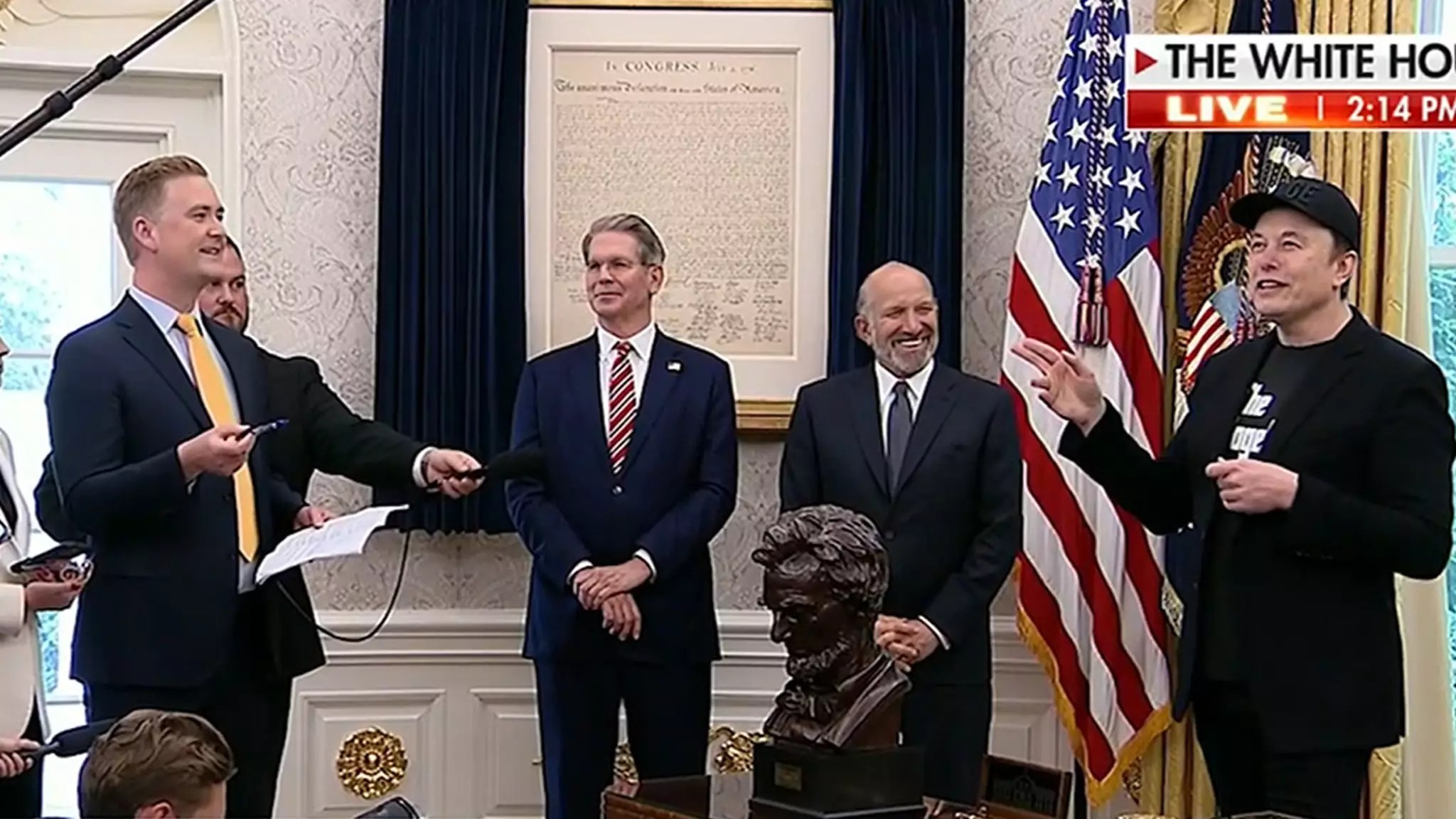In a dramatic turn of events, Tesla and SpaceX CEO Elon Musk has found himself at odds with the prestigious New York Times regarding allegations of drug abuse. Musk, known for his audacious behavior and unyielding presence in the digital and real-world arenas, dismissed The Times as an unreliable news source. This contentious exchange raises questions not only about Musk’s personal choices but also about the integrity of journalism in an era where facts and opinions often intertwine in a chaotic dance.
Musk’s disdain for the Times stems from their recent report claiming he has been using significant quantities of drugs, including ketamine and Adderall, to the point where it has begun affecting his health. In a public press conference, rather than addressing the potential implications of such allegations, Musk chose to ridicule the newspaper, framing its reporting as another instance of sensationalism similar to their coverage of “Russiagate.” The dismissal of serious accusations through mockery may resonate with his supporters but also reflects a troubling trend where public figures weaponize media narratives to deflect scrutiny.
The Allegations: What’s Fueling the Fire?
While Musk’s response garners applause from his followers, the allegations presented by The Times cannot simply be swept under the rug. Reports indicate that Musk has traveled with a “daily medication box” containing up to 20 different pills, raising eyebrows not just about his health choices, but also about the ethical implications of a high-profile figure potentially abusing substances. The assertion that he has claimed to consume “so much ketamine” that it affects his bladder adds a new dimension to the discussion around mental health and substance use in high-pressure environments like Silicon Valley and Washington D.C.
Musk’s press conference moments before stepping down from a governmental role were punctuated by a black eye, an odd visual cue that adds a layer of intrigue to his narrative. Is this a reflection of the toll that the public and personal pressures have taken on him? Or is it merely another spectacle in the life of a man who thrives on drama? Regardless, this incident encapsulates the dual nature of Musk’s existence—one where genius and chaos often collide.
Media Integrity in the Crossfire
The spat between Musk and The Times opens the floodgates to discussions about media integrity and accountability. The New York Times clarified that Trump’s recent lawsuit targets the Pulitzer Prize Board, not the newspaper itself. This delineation showcases an ongoing legal battle over journalistic credibility that transcends individual cases. The Pulitzer Prize, intended to uphold high standards of reporting, has become embroiled in controversy, with Musk suggesting that perhaps it should be returned as a form of reparative justice for what he terms sensational misrepresentation.
In that light, the media’s responsibility intensifies as they navigate complex stories involving such polarizing figures. Musk’s pushback highlights the precarious balance between reporting on public individuals versus the risk of sensationalizing potential personal downfalls. The ambiguity woven into the relationship between high-profile newsworthy figures and traditional journalism remains a delicate subject; one that requires discerning analysis and careful articulation.
The Public’s Role: Engaging with Narratives
As consumers of this unfolding drama, the public must engage critically with narratives that shape our perceptions of power players like Musk. His provocations may seem entertaining, even empowering to many, but they are also indicative of a more significant cultural shift toward dismissing uncomfortable truths as ‘fake news.’ This phenomenon signals a dangerous absurdity—where the lines blur between actuality and performativity, leading people to question the validity of reputable sources.
However, blind allegiance to either Musk or The New York Times is ill-advised. Both entities reflect pieces of a larger puzzle—the evolution of media consumption, public scrutiny, and individual accountability. The challenge lies in recognizing that—while celebrities may wield the power to distort narratives for their own ends—they also carry the weight of public influence, making their behavior worthy of scrutiny and discussion.
As the story develops, the vital question remains: Will Elon Musk continue to redefine the norms of public accountability, or will his drive for disruption invite further examination of not just his actions but the media that reports on them?


Leave a Reply